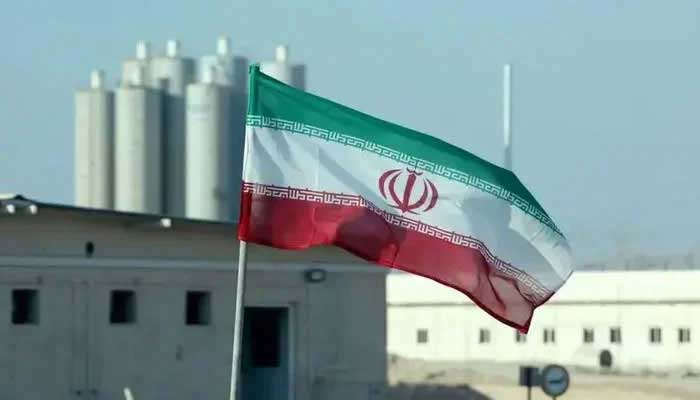Politics
United Nations arms embargo, other sanctions reimposed on Iran

- United Nations’ sanctions on Iran restored.
- Iran recalls ambassadors to Britain, France, Germany.
- Iran’s rial hits record low amid sanctions fears.
UNITED NATIONS: The United Nations reinstated an arms embargo and other sanctions on Iran on Saturday following a process triggered by key European powers that Tehran has warned will be met with a harsh response.
Britain, France and Germany triggered the return of sanctions on Iran at the UN Security Council over accusations the country has violated a 2015 deal that aimed to stop it from developing a nuclear bomb. Iran denies seeking nuclear weapons.
Iran’s Foreign Minister Abbas Araqchi urged UN Secretary General on Sunday to prevent a revival of mechanisms to implement UN sanctions after they were reimposed on Tehran.
“We urge you to prevent any attempt to revive the sanctions mechanisms, including the Sanctions Committee and the Panel of Experts,” Araqchi wrote in a letter posted on X, adding that Tehran will not recognise any attempt to extend, revive or enforce UN sanctions.
The end of the decade-long nuclear deal originally agreed by Iran, Britain, Germany, France, the United States, Russia and China is likely to exacerbate tensions in the Middle East, just months after Israel and the US bombed Iranian nuclear sites.
UN sanctions imposed by the Security Council in resolutions adopted between 2006 and 2010 were reinstated at 8pm EDT Saturday (0000 GMT). Attempts to delay the return of all sanctions on Iran failed on the sidelines of the annual gathering of world leaders at the UN this week.
“We urge Iran and all states to abide fully by these resolutions,” the foreign ministers of France, Britain and Germany said in a joint statement after the deadline passed.
Tehran has warned of a harsh response. But Iranian President Masoud Pezeshkian said on Friday that Iran had no intention of leaving the Non-Proliferation Treaty. Iran said on Saturday it was recalling its ambassadors to Britain, France and Germany for consultations.
Russia has disputed the return of UN sanctions on Iran.
“It is unlawful, and it cannot be implemented,” Russian Foreign Minister Sergei Lavrov told reporters at the UN earlier on Saturday, adding that he had written to UN Secretary-General Antonio Guterres warning that it would be “a major mistake” for him to acknowledge a return of UN sanctions on Iran.
The UN Security Council website was swiftly updated on Saturday evening to reflect the return to sanctions.
Diplomacy still an option
The European powers had offered to delay reinstating sanctions for up to six months to allow space for talks on a long-term deal if Iran restored access for UN nuclear inspectors, addressed concerns about its stock of enriched uranium, and engaged in talks with the United States.
“Our countries will continue to pursue diplomatic routes and negotiations. The reimposition of UN sanctions is not the end of diplomacy,” the foreign ministers of Britain, France and Germany said. “We urge Iran to refrain from any escalatory action and to return to compliance with its legally binding safeguards obligations.”
US President Donald Trump has been clear that diplomacy is still an option for Iran and a deal remains the best outcome for the Iranian people and the world, US Secretary of State Marco Rubio said in a statement after the UN sanctions were reimposed.
“For that to happen, Iran must accept direct talks, held in good faith, without stalling or obfuscation,” he said, stressing that until there was a new deal it was important that countries implemented sanctions “immediately in order to pressure Iran’s leaders to do what is right for their nation, and best for the safety of the world.”
Iran’s economy is already struggling with crippling US sanctions reimposed since 2018 after Trump ditched the pact during his first term.
Iran’s rial currency continued to decline over fears of new sanctions. The rial fell to 1,123,000 per US dollar, a new record low, on Saturday, from about 1,085,000 on Friday, according to foreign exchange websites, including Bon-bast.com.
With the return of UN sanctions, Iran will again be subjected to an arms embargo and a ban on all uranium enrichment and reprocessing activities and any activity related to ballistic missiles capable of delivering nuclear weapons, including launches.
Other sanctions to be reimposed include a travel ban on dozens of Iranian individuals, an asset freeze on dozens of Iranian individuals and entities and a ban on the supply of anything that could be used in Iran’s nuclear program.
All countries are authorised to seize and dispose of any items banned under UN sanctions and Iran will be prohibited from acquiring an interest in any commercial activity in another country involving uranium mining, production or use of nuclear materials and technology.